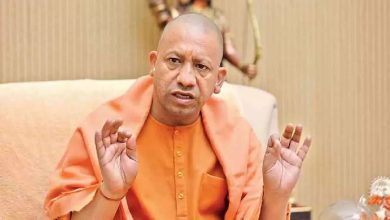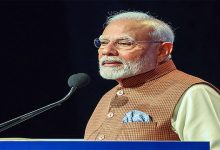Modi, SAD & the elusive Sikh vote — why Punjab remains an impregnable fortress for BJP

Chandigarh: In his reply to the Opposition’s ‘No-Confidence Motion’ last week, Prime Minister Narendra Modi made references to Operation Blue Star, the Indian Army’s June 1984 operation at the Golden Temple in Amritsar — the holiest shrine in Sikhism — to flush out militants.
In his speech, Modi referred to the operation as an attack on the Akal Takht — the highest temporal body of the Sikhs — and criticised the Congress government led by former prime minister Indira Gandhi for having ordered it.
The PM’s speech, framed against a larger criticism of the Congress, is being viewed as an acknowledgement that the military operation was an unwarranted attack on the shrine. In a social media post, Sukhbir Singh Badal, a former deputy chief minister of Punjab whose Shiromani Akali Dal (SAD) was once an ally of Modi’s National Democratic Alliance (NDA), was quick to appreciate the gesture.
“While I welcome Prime Minister Narendra Modi’s statement finally acknowledging the guilt of #OperationBluestar as an outrageous attack on the holiest Sikh shrine, Sachkhand Sri Harmandir Sahib and the highest seat of Sikh religious-political authority (Miri-Piri), Sri Akal Takht Sahib, there is no reason whatsoever left now for the Govt of India not to tender an unconditional apology to the Khalsa Panth for this most tragic outrage against the Guru’s abode,” Badal posted on ‘X’ (formerly Twitter) Saturday.
Modi’s remarks and SAD’s response — coming less than a year before next year’s General Elections — sparked rumours of a possible rapprochement between the former allies. But according to political analysts, the speech must be viewed in line with the Bharatiya Janata Party’s (BJP) attempts to woo Sikhs — a vote bank that has always eluded the party.
Until they broke up over the central government’s controversial farm laws in 2020, the BJP and SAD had been allies for over two decades starting 1997. During this period, while the BJP focused on the urban Hindu voters, the Akalis’ mainstay was the rural Sikh peasantry.
According to Kanwalpreet Kaur, a professor of political science at DAV College in Chandigarh, the schism between the two parties began some years before they actually split and was rooted in the BJP’s strategy to strike out on its own in the state.
“This gradual division had largely to do with the prime minister becoming upset with the Akali leadership on several occasions. At some point, BJP’s central leadership seems to have decided to work towards ending their dependence on the Akalis in Punjab and going solo. That is when the prime minister and the BJP started making several overt gestures to try and get the Sikhs to flock to the BJP” she told ThePrint.
















